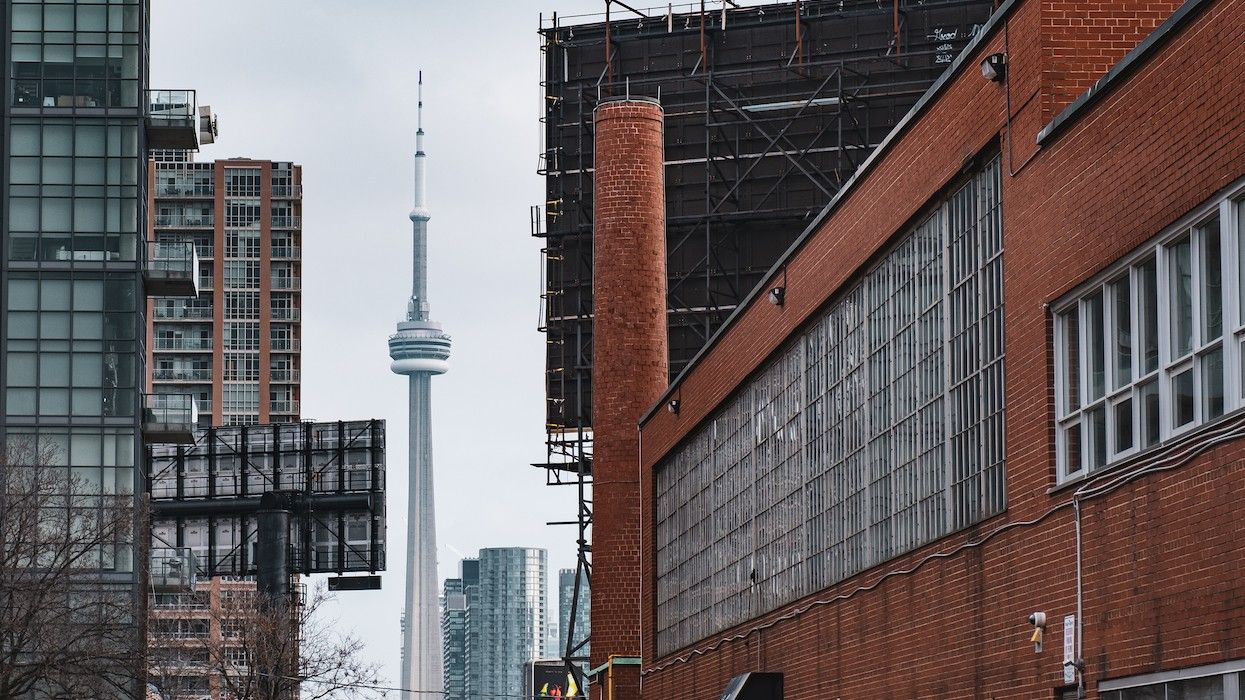Month after month, housing supply is building up on the Toronto real estate market as sales fall flat. Meanwhile, condo inventory makes up more than half of the supply out there. According to the latest data from the Toronto Regional Real Estate Board (TRREB), there were 11,705 active listings in the City of Toronto at the end of May, of which 6,855 were condo listings.
This means that nearly 60% of the city’s housing inventory consists of condos, which isn’t necessarily news to anyone with an ear to the ground of the market — that figure has moved back and forth between 59% and 66% since last spring — but it does give us some insight into what we’re in for when it comes to the future of new condos in the city.
Speaking to the condo surplus highlighted in TRREB’s monthly report, the Board's Chief Information Officer Jason Mercer says it’s “by and large” resale, and that the contrast of roaring supply and sluggish demand is “fairly unique” to this point in time.
“You have to take into consideration that the condo stock has been growing steadily,” Mercer explains. “So, you’d expect active listings to trend upward — simply because this is the segment where we've seen the most construction activity. As a share of the overall housing market, condo apartments have accounted for a growing portion year after year, really over the past couple of decades.”
“But if we had a lot of inventory and a lot of sales, the market could still be tight. What we have right now is a disconnect between inventory and sales,” he adds.

To Mercer’s point, there were just 973 condo sales reported through the MLS system in May — a figure that marks a 25% year-over-year decline and falls significantly short of both the new and active condo listings (4,013 and 6,855, respectively) recorded in the month.
At the May level of sales, there was seven months of active condo supply on Toronto's market last month, explains Shaun Hildebrand, President of Urbanation. This indicates the amount of time it would take for the market to absorb the available inventory, taking into consideration the current level of demand. Generally, anything above five months of inventory suggest buyers’ territory in Toronto.
“The record level of resale inventory on the market is putting downward pressure on condo resale prices, which fell 7.3% annually in May. And as resale condo prices decline, it makes new condos, which are generally priced above resale units, less competitive and reduces their attractiveness to buyers,” says Hildebrand. ”It also creates complications for buyers who pre-purchased units that are reaching closing. If resale prices are declining, new condo units may not be worth their contracted price, so there may be issues with obtaining a mortgage.”
Further to Urbanation’s condo market report put out in April, Hildebrand also shares there are 6,402 unsold units in pre-construction, 5,986 unsold units under construction, and 1,149 unsold new units in standing inventory in the City of Toronto alone. These figures are not reflected in TRREB’s monthly report, which focuses predominately on resale. In addition, the standing inventory figure does not fully account for units that were pre-sold but didn't end up closing, Hildebrand notes.

When asked if he’s seen these kinds of condo market dynamics before, Hildebrand points to the market correction that occurred in the 1990s. “It took basically a full decade for the condo market to recover,” he says.
Mercer underscores that we shouldn’t be taking the numbers we're seeing today lightly. “There's so much inventory on the resale side and you're not seeing a lot of new home sales, so you're not seeing a lot of project launches,” he says. “And that is a concern, medium to long term, because we are going to reach this point in the housing supply pipeline where we hit this low... we're going to be looking at a real drop off in completions.”
That's also the takeaway from a new report from Canada Mortgage and Housing Corporation’s (CMHC), released Tuesday, which shows that 55% of pre-construction condo units in Toronto went unsold by the end of the first quarter. That figure is only slightly below the “record high” of 56% from the end of 2024. “This level of unsold units presents a significant challenge for developers seeking funding for their projects. Lenders typically require a pre-sale threshold of 70% (PDF) prior to releasing funds,” CMHC said.
The national housing agency also said that condo unit cancellations were five times higher in the quarter than they were in 2022, and that cancellations and reduced construction will likely characterize the market in the “near term” as prices continue to slip and investors shy away from the segment.
- ‘There’s Going To Be A Crisis’: New Condo Construction Is Heading Toward A Cliff ›
- GTA Condo Supply Is Approaching A Number “The Market Has Never Seen” ›
- GTA Active Listings Hit 31K In May – Highest In Nearly 25 Years ›
- What The Toronto Real Estate Market Will Look Like This Summer ›
- GTA Active Listings Hit Another High With 31,600 Units On Market ›
- "Havoc": GTHA New Condo Sales Plunge 90% Below 10-Year Average ›
- CIBC, Urbanation Say GTA Condo Market Is “Down, But Not Out”: ›
- Is It Time To 'Buy The Dip' On Investment Condos? ›





















